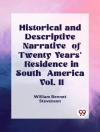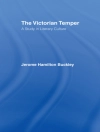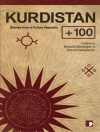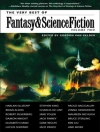A century ago, Henry Kitchell Webster (1875-1932) was a well-known, well-paid, and well-respected author. His stories frequently appeared in major magazines such as the Saturday Evening Post. In 1921, the New York Times printed his thoughts on ‘What Is a Novel, Anyhow?’ But why should we bother with his novels, short stories, and plays today? Because his characters are charming and intelligent. They pursue their goals in intriguing ways. The situations are unusual: this volume includes several set in the theater and in the business world. The endings are unpredictable, except in the sense that they are upbeat and satisfying. Webster’s works hold their appeal because of that upbeat sense of life. If you enjoy the sculpture of Augustus Saint Gaudens or the paintings of Maxfield Parrish (both of whose lives overlap with Webster’s), you’ll probably find delight in Webster’s works as well. Volume 3 of Webster’s Collected Works, covering 1915-1922, includes 11 short stories, one play (previously unpublished), 49 letters (all previously unpublished), and a short biography of Webster.
Об авторе
At age five, I won my first writing award: a three-foot-long fire truck with an ear-splitting siren. I’ve been addicted to writing ever since. Today I’m an independent researcher, freelance writer, and lecturer. The challenge of figuring out how ideas and facts fit together, and then sharing what I know with others, clearly and concisely — that’s what makes me leap out of bed in the morning. Janson’s *History of Art*, lent to me by a high-school art teacher, was my first clue that art was more than the rock-star posters and garden gnomes that I saw in Catawissa, Pennsylvania, and that history wasn’t just a series of names, dates, and statistics. Soon afterwards I read Ayn Rand’s fiction and nonfiction works, and discovered that art and history — as well as politics, ethics, science, and all fields of human knowledge — are integrated by philosophy. My approach to studying art is based on Rand’s *The Romantic Manifesto*. (See my review of it on Amazon.) As an art historian I’m a passionate amateur, and I write for other passionate amateurs. I love looking at art, and thinking about art, and helping other people have a blast looking at it, too. *Outdoor Monuments of Manhattan: A Historical Guide* (New York University Press, 2007), which includes 54 sculptures, was described by Sam Roberts in the *New York Times* as ‘a perfect walking-tour accompaniment to help New Yorkers and visitors find, identify and better appreciate statues famous and obscure’ (1/28/2007). Every week I issue four art-related recommendations to my supporters, which have been collected in *Starry Solitudes* (poetry) and *Sunny Sundays* (painting, sculpture, architecture, literature, and more). For more of my works, see https://diannedurantewriter.com/books-essays .












